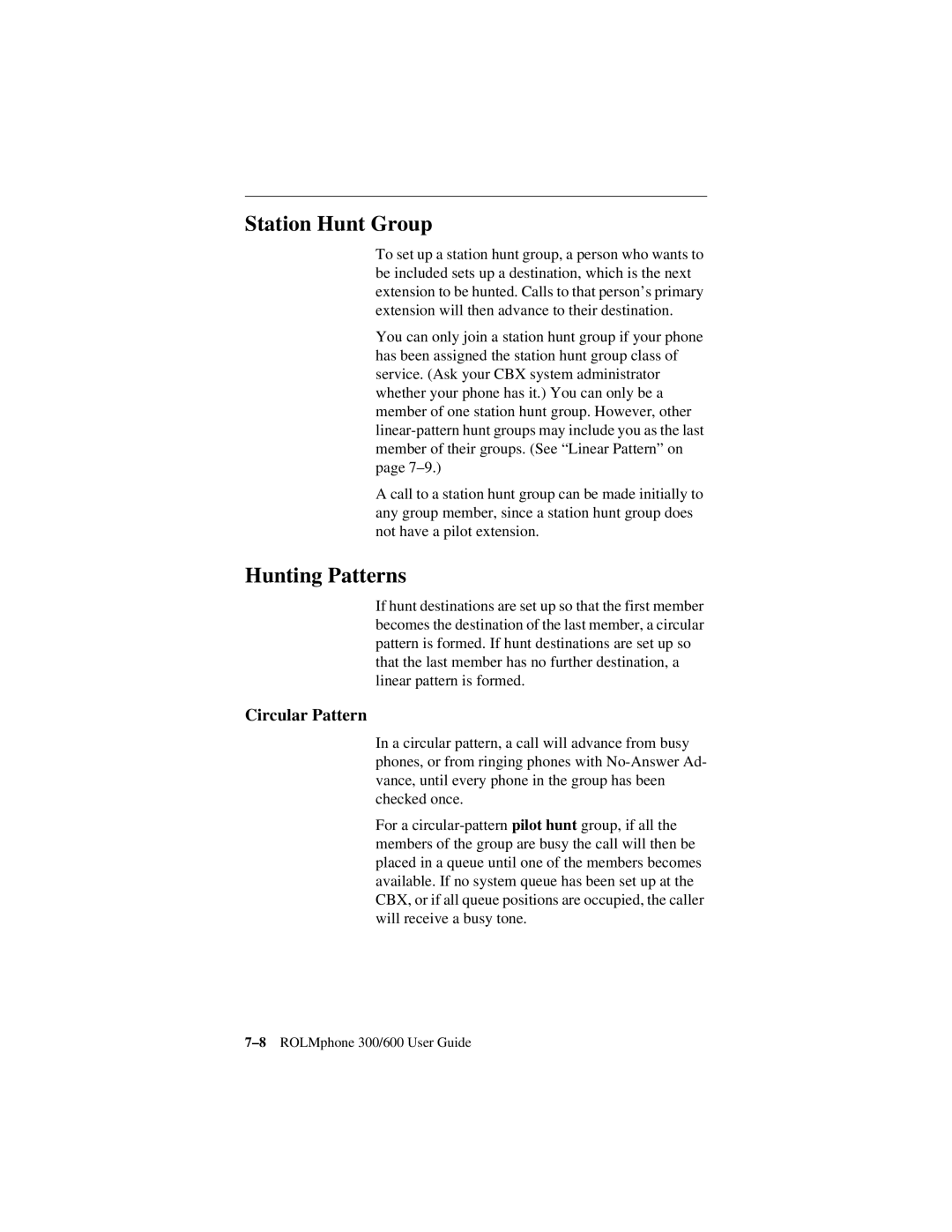Station Hunt Group
To set up a station hunt group, a person who wants to be included sets up a destination, which is the next extension to be hunted. Calls to that person’s primary extension will then advance to their destination.
You can only join a station hunt group if your phone has been assigned the station hunt group class of service. (Ask your CBX system administrator whether your phone has it.) You can only be a member of one station hunt group. However, other
A call to a station hunt group can be made initially to any group member, since a station hunt group does not have a pilot extension.
Hunting Patterns
If hunt destinations are set up so that the first member becomes the destination of the last member, a circular pattern is formed. If hunt destinations are set up so that the last member has no further destination, a linear pattern is formed.
Circular Pattern
In a circular pattern, a call will advance from busy phones, or from ringing phones with
For a
